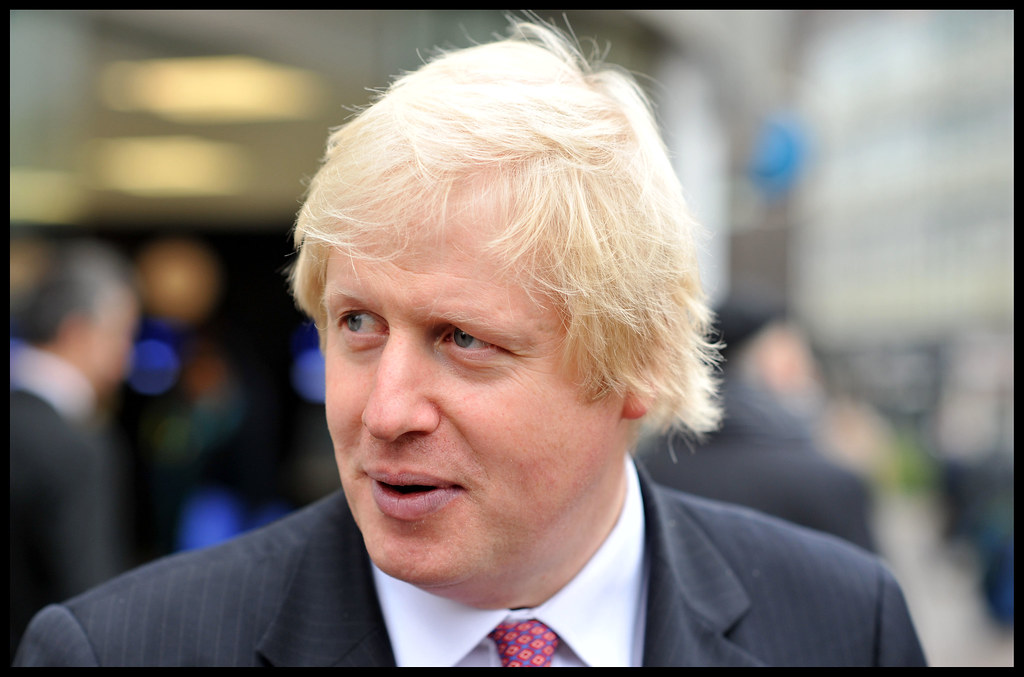Boris Johnson admits US-UK trade deal won’t be a ‘pushover’ under Biden
“The whole point is to protect and uphold the Good Friday Agreement and the peace process in Northern Ireland, one of the things we are united on with our friends in the White House,” said Johnson. The UK PM once again expressed his confidence around a UK-EU post-Brexit trade agreement, talks for which remain ongoing this week as EU’s Chief Brexit Negotiator, Michel Barnier, and the UK’s Lord Frost continue talks in London this week.

- Country:
- United Kingdom
UK Prime Minister Boris Johnson has admitted that he does not believe a post-Brexit trade deal with the US would be a “pushover” under the new President-elect Joe Biden but stressed that there is a “good chance” of it coming through. In a broadcast interview from 10 Downing Street in London on Sunday, Johnson reiterated his previous congratulatory statements on Biden’s election win and also welcomed Kamala Harris for making history as the first female Vice-President in the US.
“The US is our closest and most important ally and that’s been the case under President after President, Prime Minister after Prime Minister, it won’t change. I look forward very much to working with President Biden and his team on a lot of crucial stuff for us in the weeks and months ahead – tackling climate change, trade, international security, many other issues,” Johnson said to the Associated Press. “On a trade deal with the US, I am a keen student of United States trade policy and they are tough negotiators. I never believed that this was something that was going to be a complete pushover under any US administration. I think there is a good chance that we will do something,” he said.
Asked about Biden’s comments in the past that have likened Johnson to outgoing US President Donald Trump as his "clone" and his well-documented opposition to Britain’s exit from the European Union (EU), Johnson stressed that there is far more that unites the UK government and the government in Washington, than divides us. “We have common values, common interests, we have a common global perspective. There is a huge amount of work that we need to do together to protect those values. I believe in democracy, in free speech around the world, in human rights, in free trade, in the rules-based international order. All these things are currently under threat,” he said.
Specifically, on the controversial Internal Market Bill, related to the open border on the island of Ireland post-Brexit, Johnson sought to dismiss Biden’s concerns. The Bill is set to go through the House of Lords on Monday, where it is expected to face tough opposition as many believe it goes against the EU Withdrawal Agreement or so-called divorce arrangement agreed with the economic bloc. “The whole point is to protect and uphold the Good Friday Agreement and the peace process in Northern Ireland, one of the things we are united on with our friends in the White House,” said Johnson.
The UK PM once again expressed his confidence around a UK-EU post-Brexit trade agreement, talks for which remain ongoing this week as EU’s Chief Brexit Negotiator, Michel Barnier, and the UK’s Lord Frost continue talks in London this week. “I have always been a great enthusiast for a trade deal with our European friends and partners. I think it’s there to be done, the broad outlines are pretty clear, we just need to get on and do it if we can,” Johnson said.
The UK left the EU on January 31 but continues to follow the bloc's rules until the end of the year. If there is no agreement at that point, trade between the two will default to World Trade Organisation (WTO) rules – with tariffs set to be introduced on many imports and exports, which could push up costs for firms and consumers. Businesses on both sides have been pushing for an agreement, the time for which is soon running out as the Brexit transition period concludes at the end of December.
(This story has not been edited by Devdiscourse staff and is auto-generated from a syndicated feed.)
- READ MORE ON:
- Boris Johnson
- Bill
- Michel Barnier
- Donald Trump
- Brexit
- European
- Johnson
- Kamala Harris
- Joe Biden
- Biden
ALSO READ
"He will be available for next one": Spencer Johnson on David Miller ahead of IPL 2024 clash against RR
"We are looking to knock them off": Spencer Johnson ahead of IPL 2024 clash against RR
Swiss press say 'absurd' European climate ruling could harm democracy
FACTBOX-European companies cut jobs as economy sputters
Neutral Switzerland joins European Sky Shield defence project










